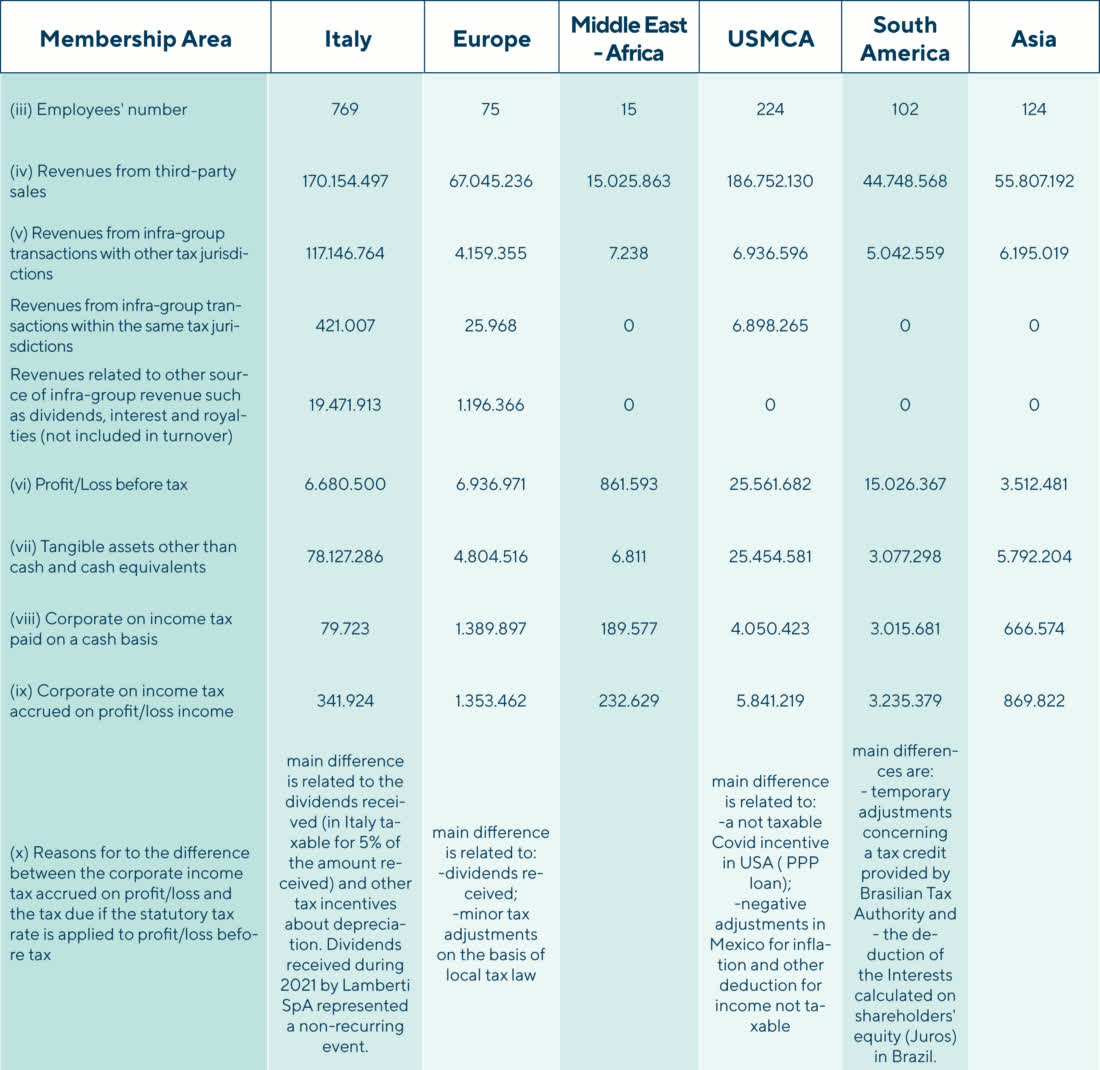Our corporate principles are consistent with what is defined within the Group's Code of Ethics, based on the Lamberti Values underlying the company's mission.
we are. Prosperity
Our corporate principles are consistent with what is defined within the Group's Code of Ethics, based on the Lamberti Values underlying the company's mission.
we are. Prosperity
Our fiscal approach is based on the principles of prudence, responsibility, consistency and transparency towards the Company's stakeholders, including the Tax Administrations of the various countries.
All activities carried out by the Group comply with the relevant tax regulations and tax planning is always aligned with business activities. Individuals who are assigned the functions of representation towards national and international Tax Authorities must be inspired by the strictest compliance with the applicable legal provisions as well as the principles of fairness, transparency and loyalty, without compromising the integrity or reputation of the Lamberti Group in any way.
In particular, Lamberti carries out intra-group transactions at market conditions (arm's length value), complying with criteria of substantive and procedural fairness for the purposes of a transparent and objective assessment: the fees for the exchange of services and/or goods between Group companies are defined on the basis of market conditions and must always be justifiable.
The corporate culture principles underlying the implemented fiscal approach are the following:
• Responsible management of the tax variable based on trust, transparency and collaboration with institutions and inspired by the principles set out in the Code of Ethics;
• Tracing and measuring of tax risks associated with business processes, aimed to containing them;
• Promoting a tax culture and compliance with all tax laws and regulations applicable in the various jurisdictions in which the Group operates;
• Promoting within the Group of general principles of conduct in tax matters, based on the values of responsibility;
• Adequacy of the organization and related processes (tax governance) in compliance with the defined objectives;
• Provision of effective monitoring procedures that allow the identification of any deficiencies or errors in its operation and the consequent implementation of the necessary corrective actions;
• Consolidated relationship with the Tax Authorities managed in a professional, transparent and timely manner.
2 mb
